Welcome to the world of kitchen composters, where everyday waste becomes a source of ecological magic! Did you know that in the United States alone, more than 30% of household waste comprises of food scraps and organic materials? It’s time to turn those discarded peels, cores, and leftovers into a powerful environmental ally.
Kitchen trash like fruit peels, vegetable trimmings, coffee grounds, and eggshells can be recycled into nutrient-rich compost using the quick and easy process of kitchen composting. This enchanted compost benefits the environment, improves gardening, and lessens our carbon footprint. Let’s dive into this kitchen composting guide and discover how to reduce waste while nourishing the Earth — one banana peel at a time!
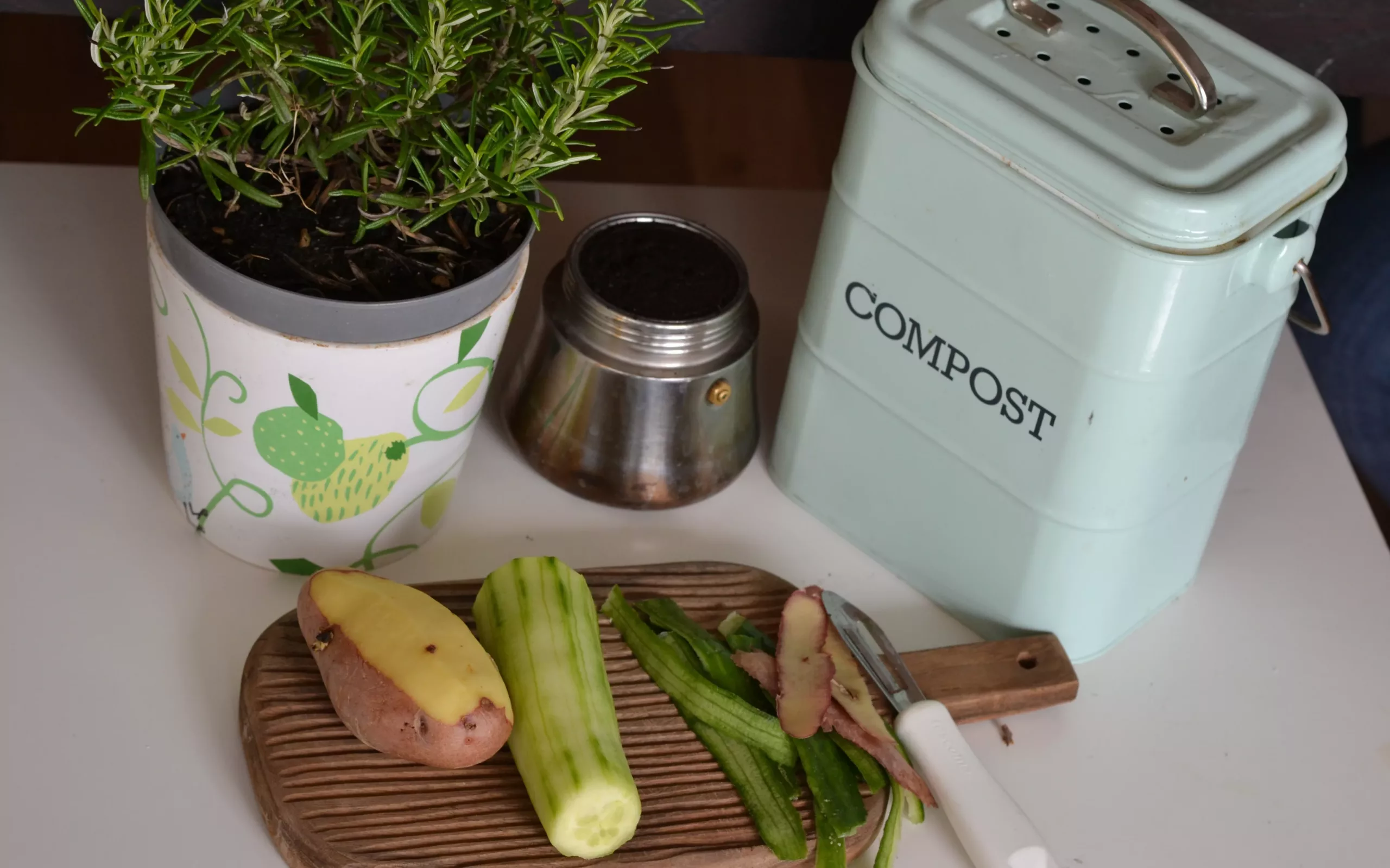
Critical Components of Kitchen Composters
A kitchen composter may seem like a simple device, but it’s packed with powerful components that work together to create a green revolution right in your home! The primary component is the compost bin itself, available in various shapes and sizes to suit your kitchen space. The operation’s heart is where food scraps are collected, and the composting benefits begins.
Next, we have the compost accelerator, a secret ingredient that speeds up the process. Coffee grounds, for instance, are a fantastic compost accelerator, getting those beneficial microorganisms working faster! Another essential component is the aeration system, allowing air to circulate and keep the compost happy and healthy.
Combined with the right balance of green and brown materials (food scraps and carbon-rich materials), these components create the perfect recipe for reducing waste and nourishing the earth.
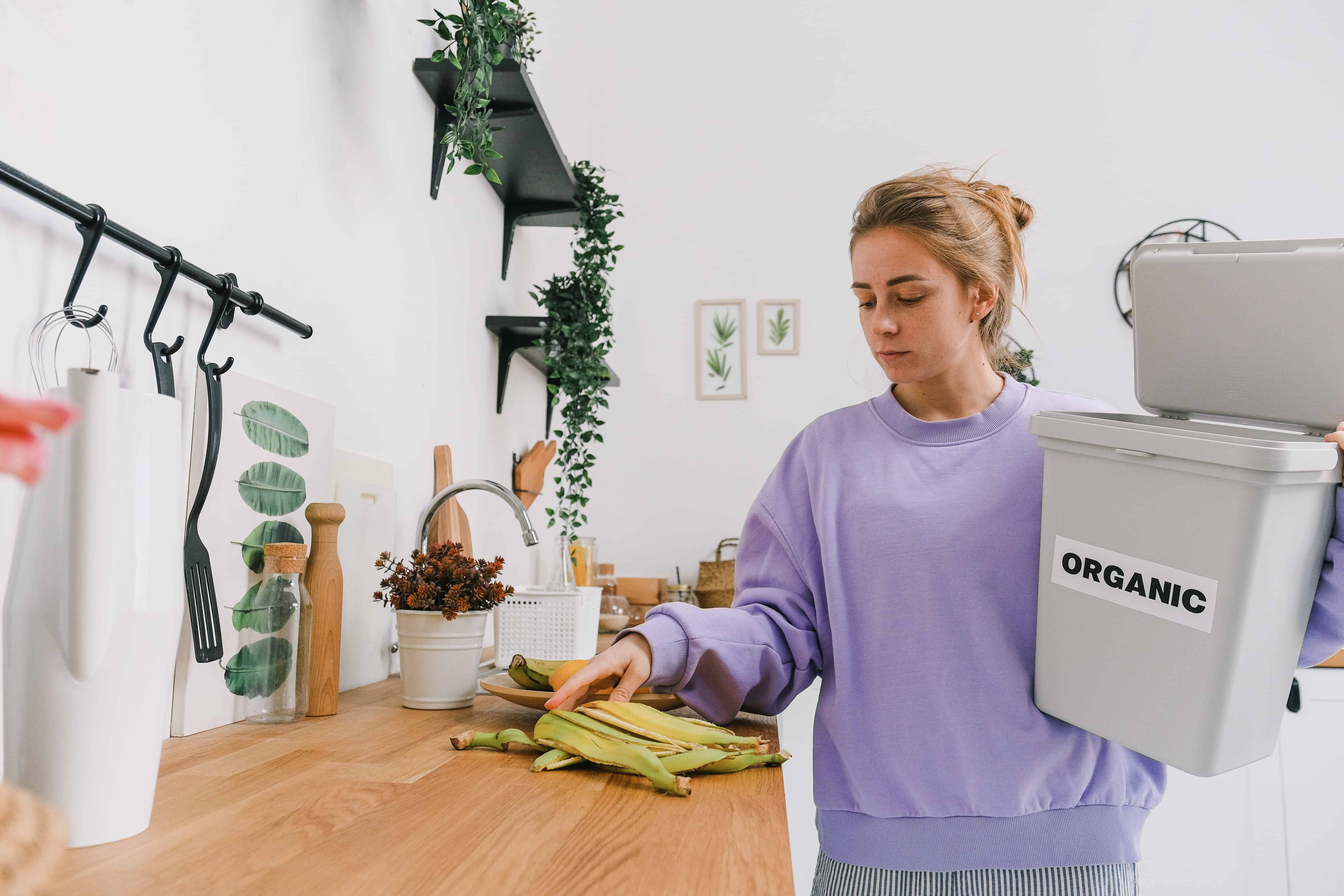
How Kitchen Composters Work
Kitchen composters are like magic factories that turn kitchen scraps into a powerful potion for the earth! Here’s how they work:
The Composting Process
Kitchen composters utilize a natural process called composting. When organic waste like vegetable peels, coffee grounds, and eggshells are combined, they break down over time through the action of microorganisms like bacteria and fungi. These little superheroes feast on the scraps, breaking them into nutrient-rich compost.
Kitchen Composters Types
Various kitchen composters include countertop bins, worm bins, and tumblers. Countertop bins are small and fit neatly in your kitchen, perfect for daily waste collection. Worm bins use worms to accelerate the composting process, while tumblers allow for easy turning and aeration, speeding up decomposition.
Reducing Waste and the Circular Economy
Composting kitchen waste reduces the amount of trash ending up in landfills. This contributes to a circular economy, where waste becomes a valuable resource for nourishing the earth and supporting sustainable living.

Tips for Kitchen Composters
Remember to balance green (nitrogen-rich) and brown (carbon-rich) materials to make your composting journey smoother. Avoid adding meat, dairy, and oily items to your composter, as they may attract pests and slow down the process.
Compost Accelerators and Compost Tea
Compost accelerators like coffee grounds or specific enzymes can supercharge the composting process. Additionally, you can collect compost tea, a liquid byproduct of composting, which makes an excellent natural fertilizer for plants.
Backyard and Community Composting
For those ready to level up, backyard and community composting initiatives provide opportunities to compost on a larger scale and have a more significant positive impact on the environment.
By understanding how these kitchen composters work, we can unlock their full potential in waste reduction, nourishing the earth, and embracing a sustainable lifestyle. So, let’s compost our way to a greener, healthier planet!
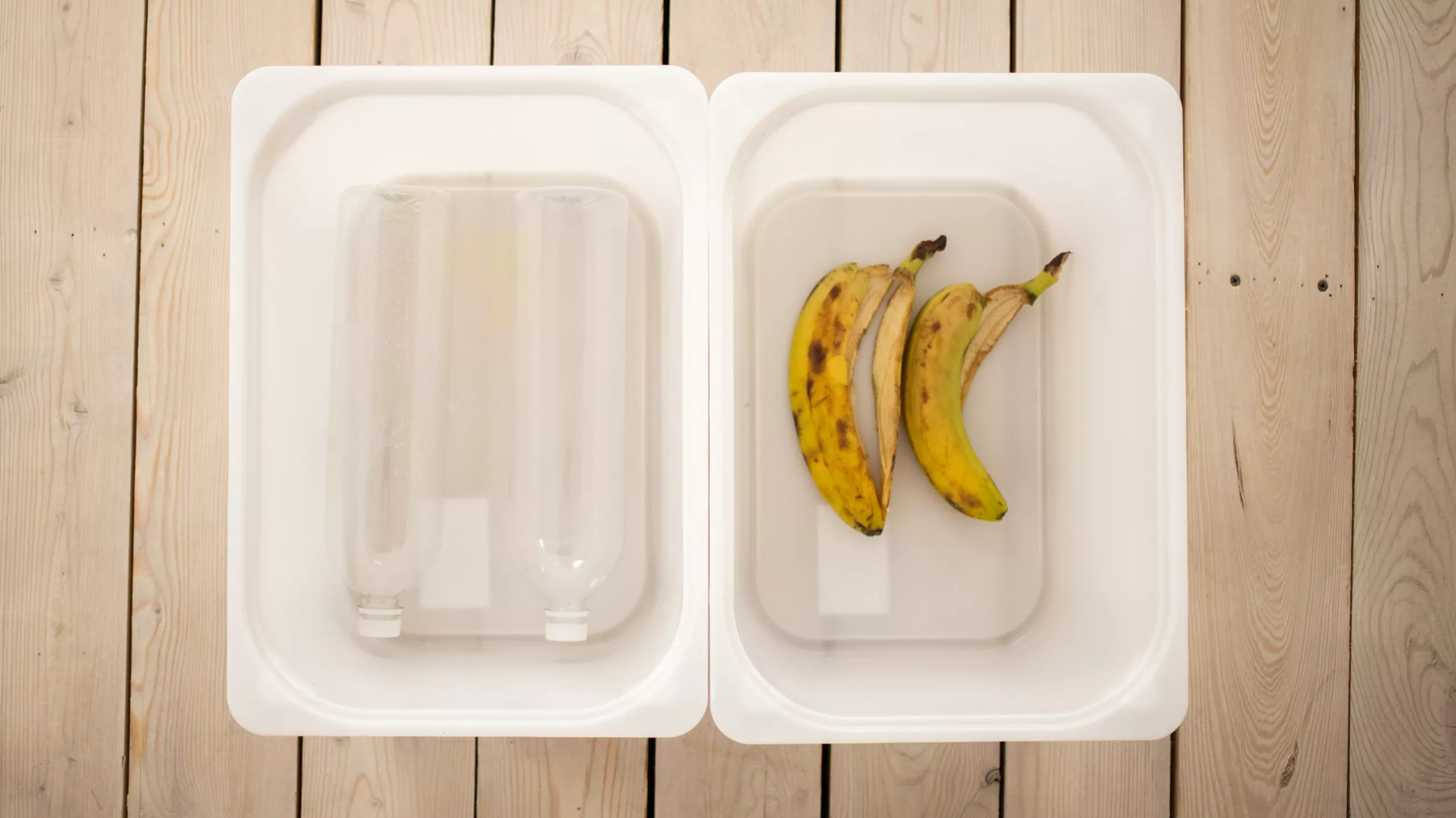
Getting Started with Kitchen Composters
Did you know that the average household throws away about 474 pounds of food waste every year? That’s like tossing away hard-earned money and valuable resources! With kitchen composters, you can become a champion who reduces waste and nourishes the earth.
Selecting the Right Kitchen Composters
The first step on your composting journey is to choose the perfect composter that suits your kitchen’s needs. There are various options to consider:
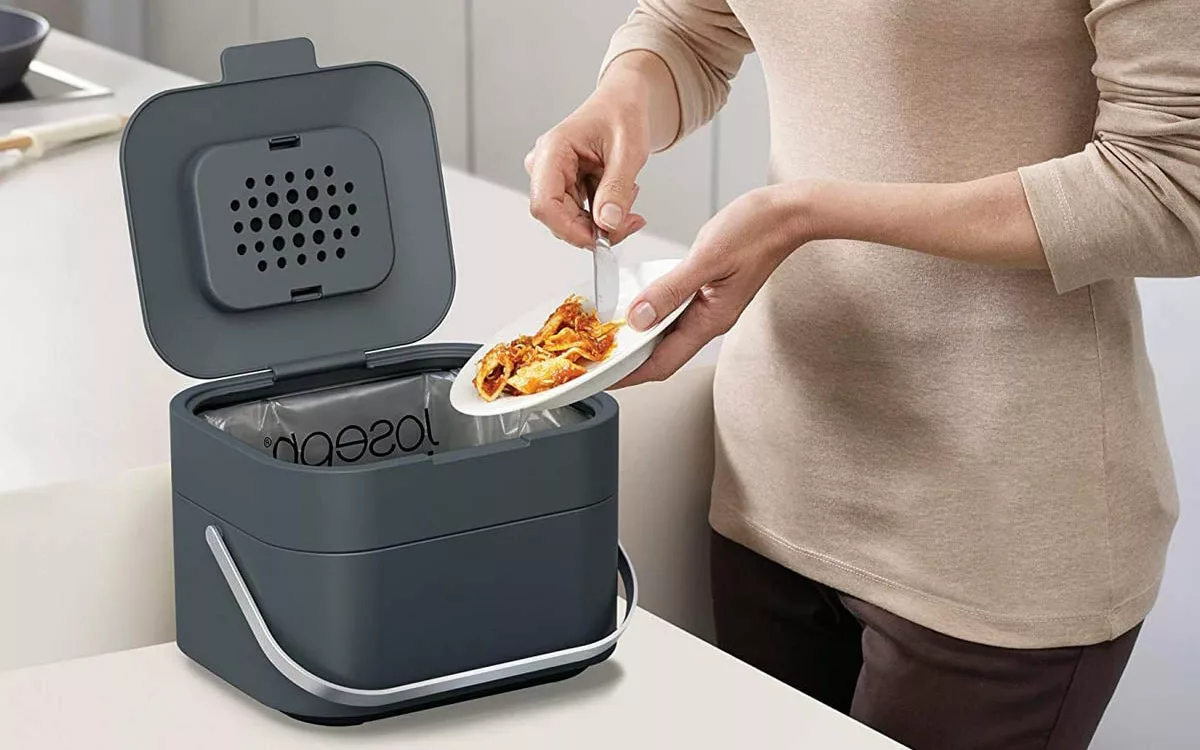
Countertop Bins
Countertop bins are a fantastic choice for compact kitchens, effortlessly facilitating daily composting. These bins conveniently sit on your countertop, making it a breeze to collect kitchen scraps while you cook. By opting for this zero waste kitchen solution, you divert organic waste from landfills, where it would release harmful greenhouse gases.
Some brands that sell eco-friendly countertop bins include: LALASTAR, SMALI, and Paris Rhône.
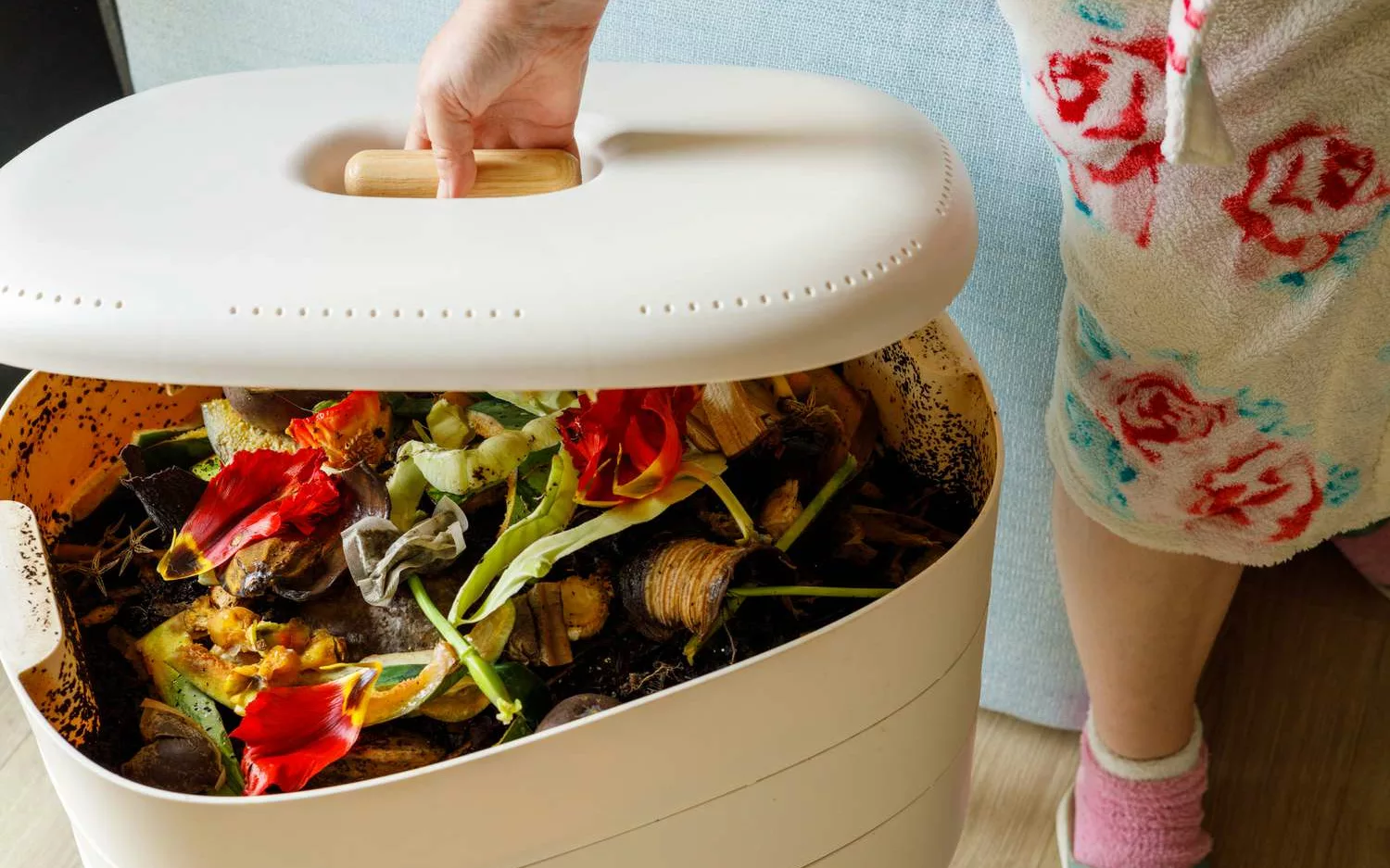
Worm Bins
For the adventurous eco-conscious, Worm Bins offer an exciting option. These little wrigglers, specifically redworms, efficiently devour kitchen waste, transforming it into nutrient-rich worm castings. This sustainable food waste management method is environmentally friendly and produces a valuable resource for your plants and gardens.
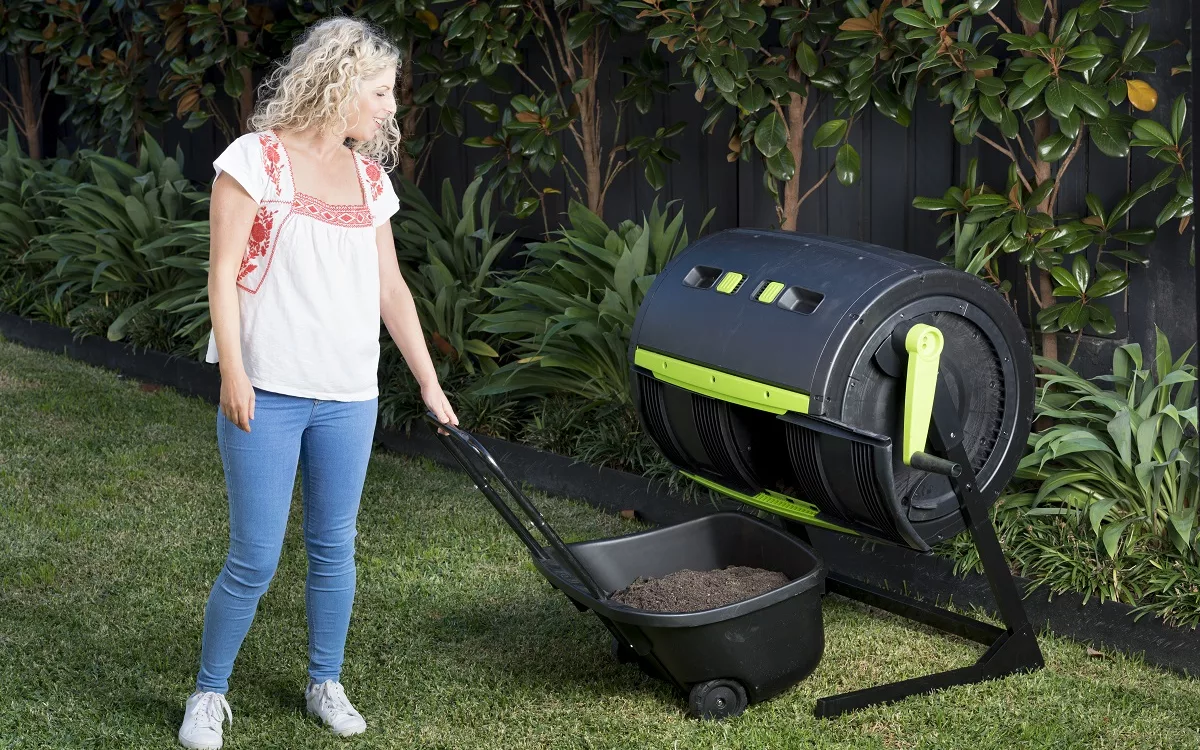
Tumblers
If speed and convenience are your priorities, Tumblers come to the forefront. Their rotating design allows for easy turning and aeration, accelerating composting. Compost accelerators in tumblers can expedite decomposition, generating nutrient-dense compost in a relatively short time.
Whichever composter you choose, integrating composting into your kitchen routine significantly contributes to reducing waste and embracing sustainable practices. By closing the loop and recycling kitchen scraps, you actively create a greener planet and positively impact the environment.
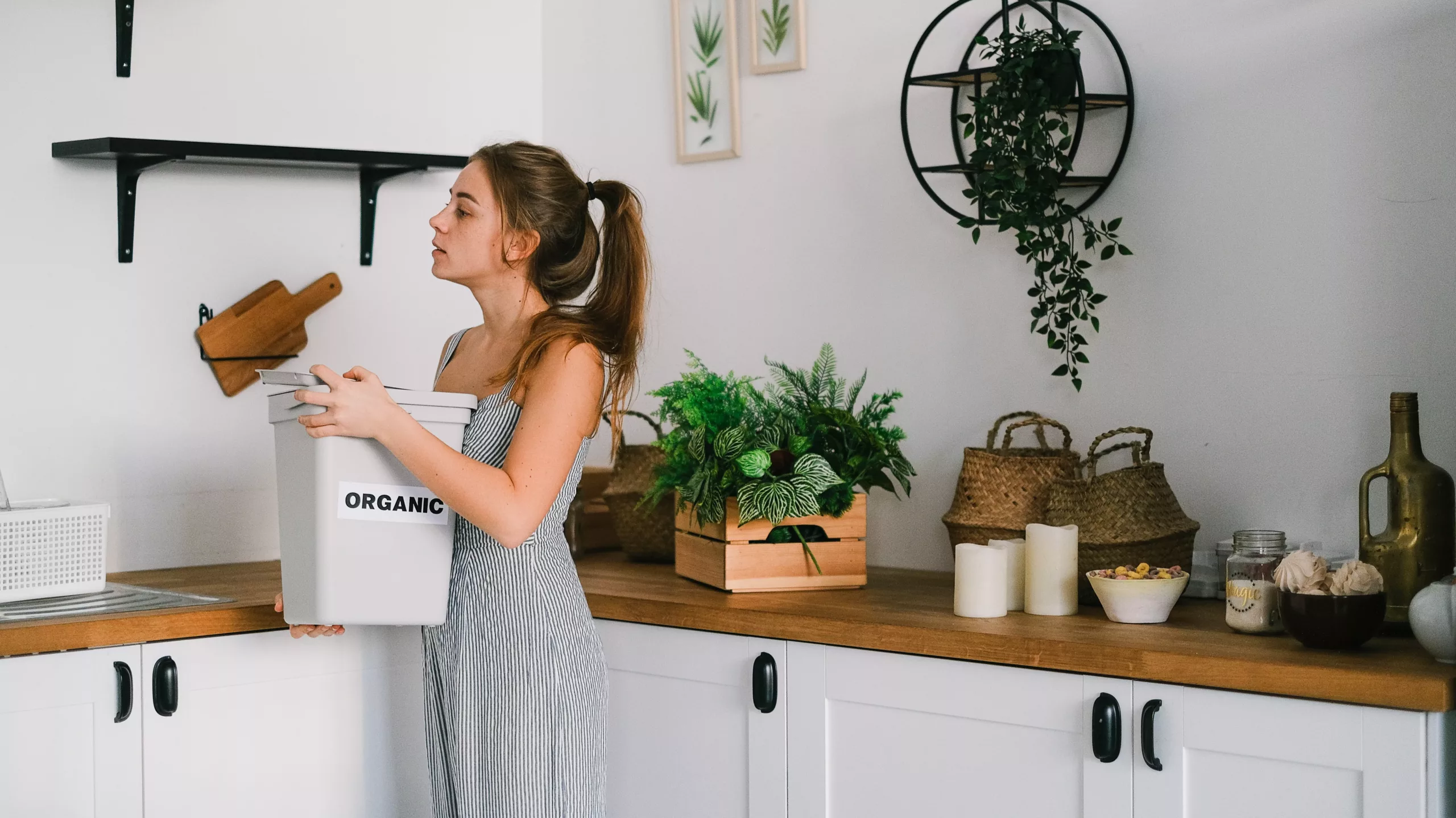
Setting Up Your Kitchen Composters
The proper setup for kitchen composters is crucial to maximize the benefits of composting and ensure a successful composting process. To get started with your kitchen composters, follow these helpful tips.
Choose the Right Location
Selecting an appropriate location for your kitchen composters is essential to facilitate composting and maintain a clean and odor-free kitchen.
1. Accessibility: Place kitchen composters in convenient spots within your kitchen, preferably near the food preparation area, so you can quickly dispose scraps and waste.
2. Ventilation: Ensure proper ventilation to allow air circulation, which aids in decomposing organic matter and helps prevent unpleasant odors from accumulating.
3. Sunlight: While kitchen composters don’t require direct sunlight, placing them near a window with indirect light can help maintain an optimal temperature for the composting process.
4. Temperature: Avoid extreme temperature fluctuations by keeping kitchen composters away from heat sources like stoves or radiators and avoiding icy areas.
5. Drainage: If you plan to collect compost tea (the nutrient-rich liquid that seeps from compost), consider placing the composter over a tray to capture the runoff and use it to fertilize your plants.
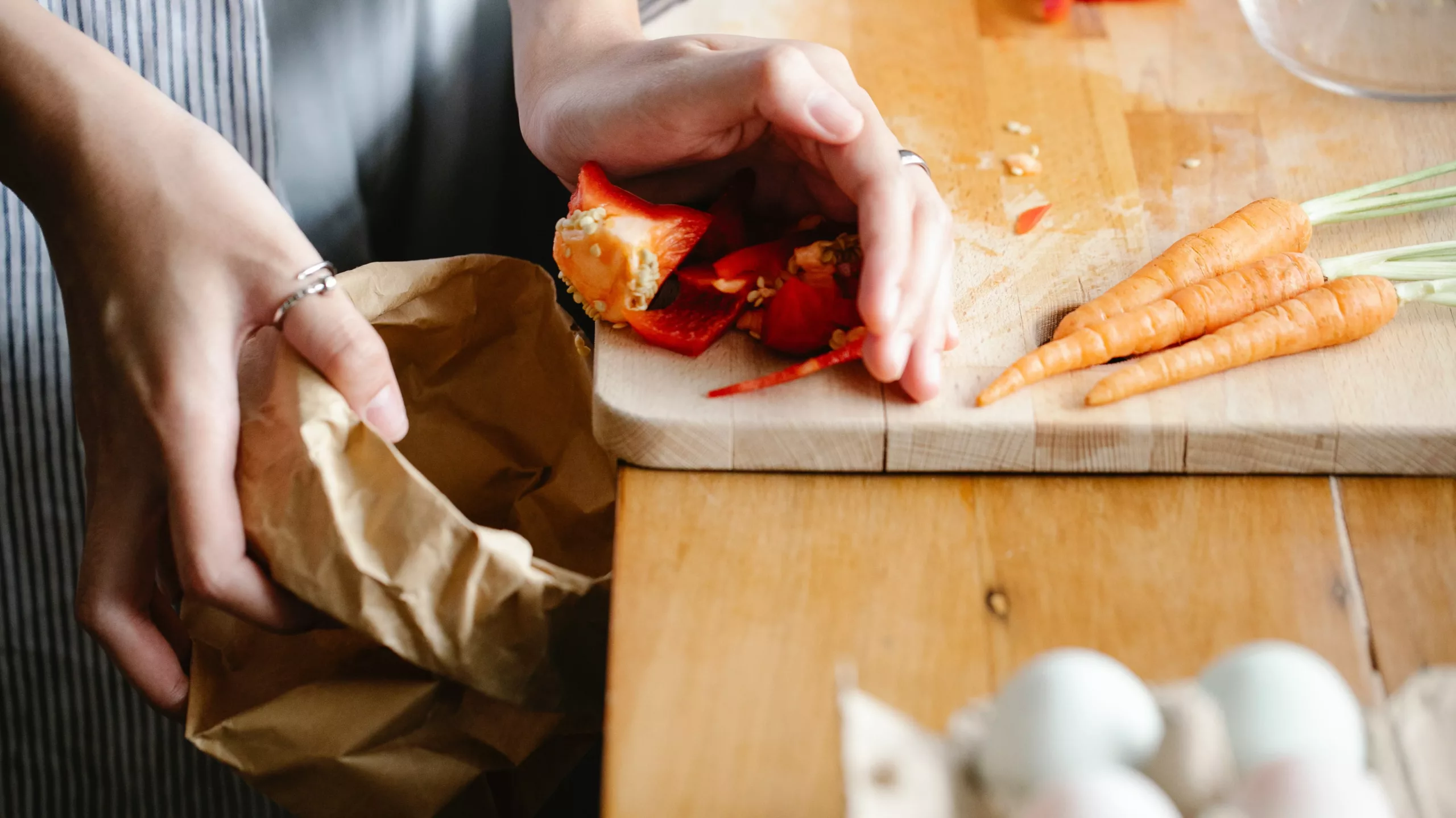
Enhance Your Composting Efforts
Take your composting game up a notch with these helpful tips that composting experts swear by.
1. Maintain a good balance between green (nitrogen-rich) and brown (carbon-rich) materials in your composter.
2. Green materials include fruit and vegetable scraps, while brown materials include dried leaves or shredded newspaper.
3. Compost accelerators, also known as activators, can speed up the decomposition process and are particularly beneficial if you have limited space or want to produce compost quickly.
4. Cut or shred large kitchen scraps to accelerate composting by increasing the surface area available for decomposition.
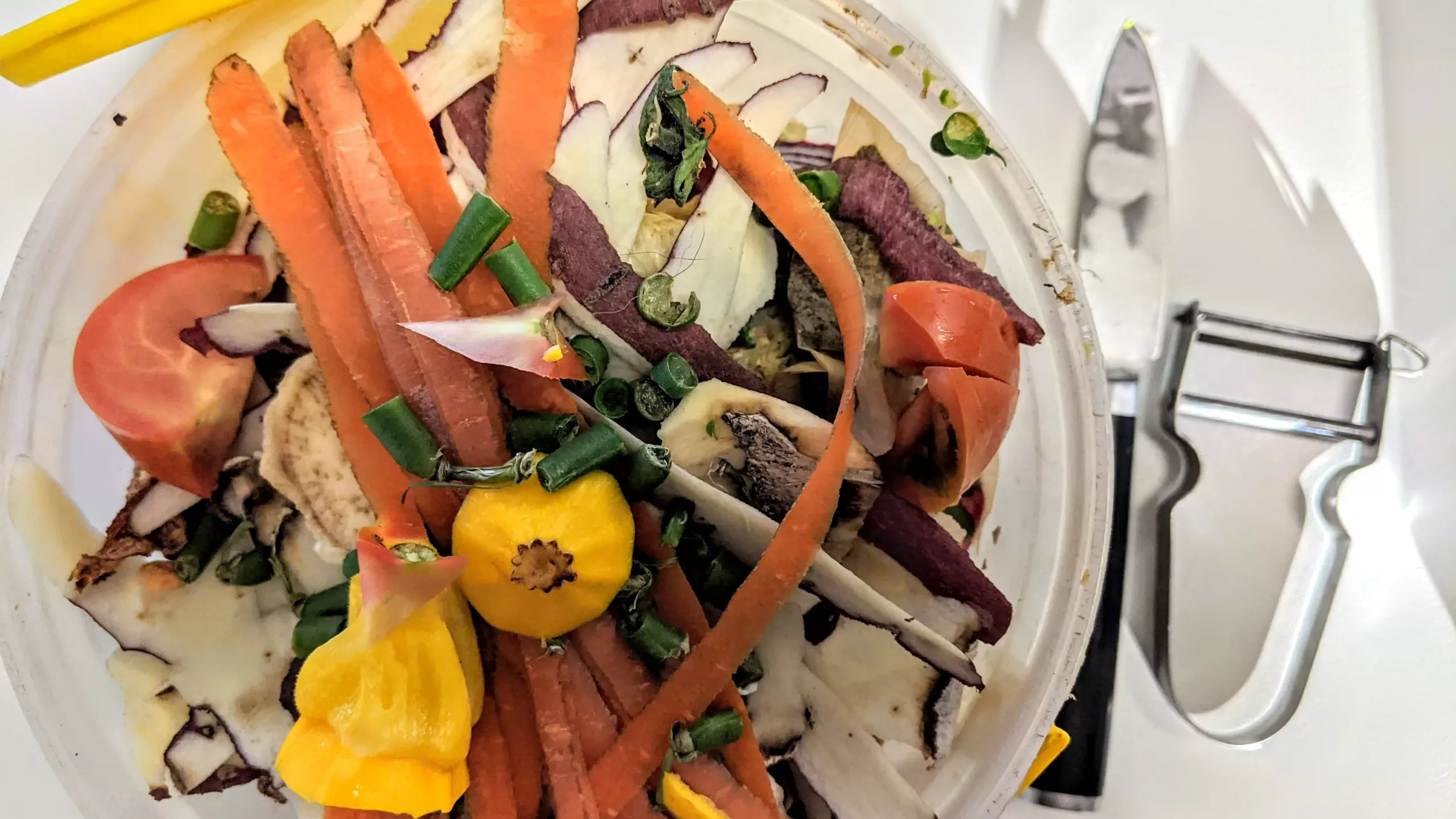
The Best Foods for Composting
When it comes to kitchen composting, not all foods are created equal. Some goodies make the composting process a breeze, while others can turn it into a stinky mess!
1. Peels, cores, and trimmings from fruits and veggies are compost gold. They add essential nutrients to the compost pile.
2. Coffee grounds are rich in nitrogen and break down quickly.
3. Crushed eggshells add calcium to the mix, benefiting your plants and helping balance acidity.
4. Used tea bags, made from natural fibers, make fantastic compostable additions.

What to Avoid Composting
Be sure to focus on the best composting materials and avoid using unsuitable ones.
1. Meat and dairy products can attract unwanted critters and slow down composting. Better left for other recycling methods.
2. Greasy leftovers, like pizza and salad dressings, don’t play nice with compost piles. They can disrupt the natural balance.
3. Packaged snacks and sugary treats will create a mess.
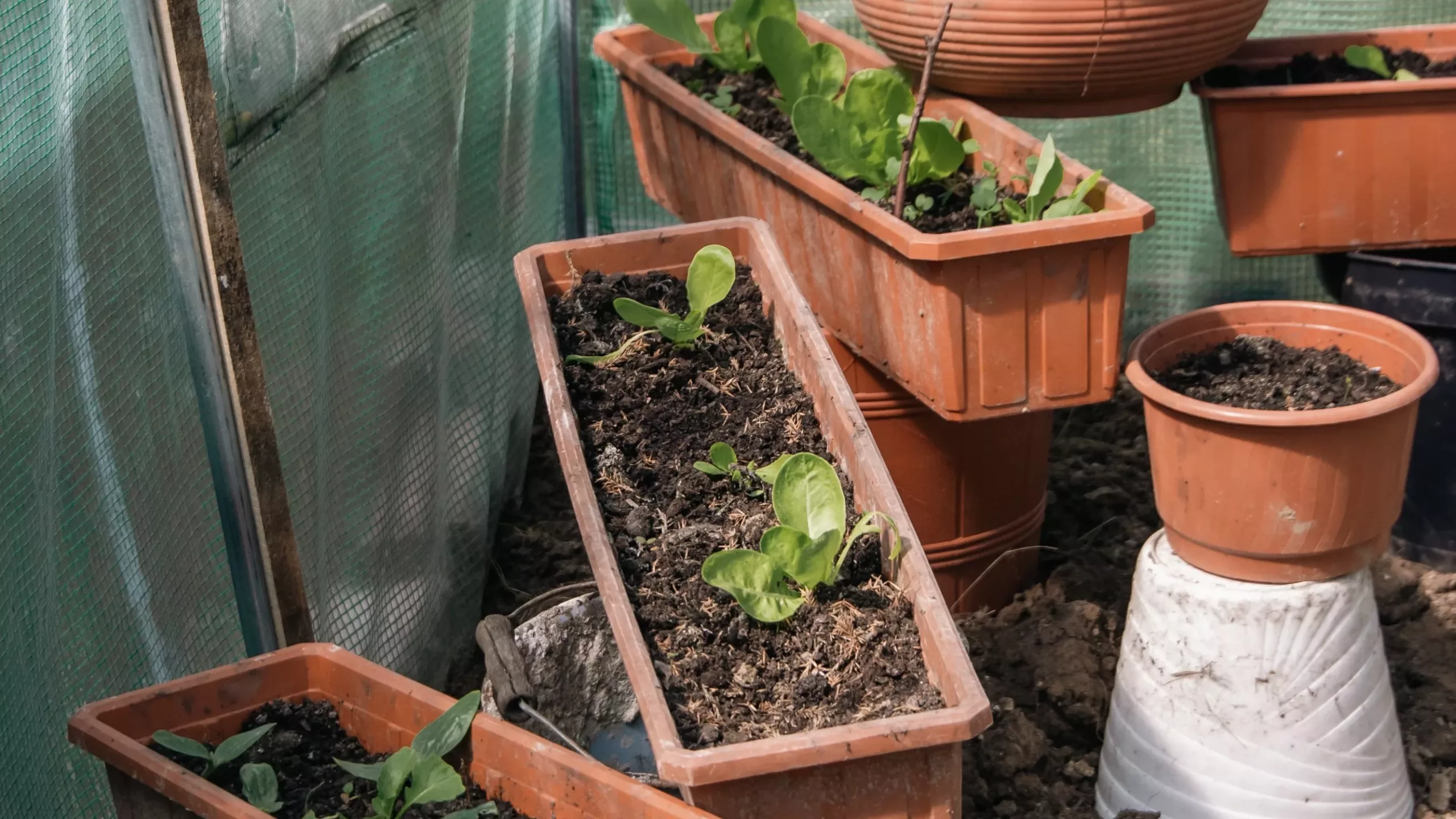
Maintaining and Troubleshooting Your Kitchen Composters
Now that your kitchen composter is up and running, let’s learn how to keep it in tip-top shape and overcome common composting challenges.
Regular Maintenance: Turning, Watering, and Aeration
Just like a garden needs tender love and care to thrive, your kitchen composter also deserves some attention to work its magic efficiently!
1. Turning the compost regularly (about once a week) allows oxygen to reach the microorganisms, keeping them happy and active. Statistics show that adequately turned compost can decompose up to two times faster than neglected compost.
2. Watering the compost allows moisture to break down effectively. Ensure your compost remains as damp as a wrung-out sponge.
3. Aeration is key to preventing unpleasant odors from forming and keeping the composting process on track.
Turning, watering, and aerating are the secret ingredients that make it a tasty treat for your plants and the earth. By regularly taking care of your kitchen composters, you’ll ensure a thriving ecosystem of beneficial microorganisms, reducing waste, nourishing the ground, and making the circular economy proud!
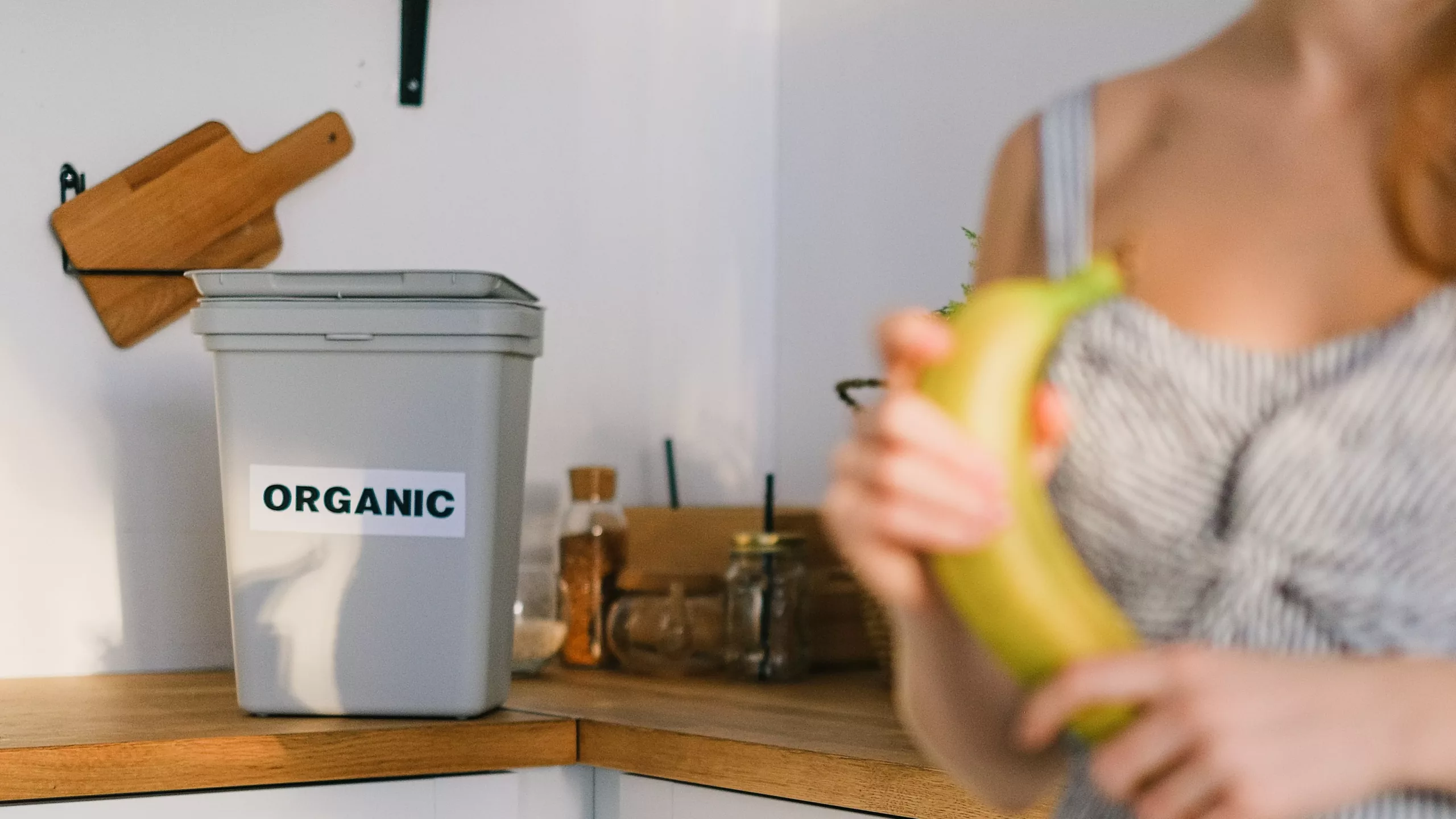
Common Composting Challenges and How to Overcome Them
Composting with kitchen composters is a fantastic way to reduce waste and nourish the earth, but let’s face it – sometimes even the best intentions encounter a few bumps on the composting road.
1. Smell: Compost should smell earthy, not stinky. Unpleasant odors are often caused by excess moisture or a lack of aeration. To overcome this, add more brown materials like dry leaves, shredded newspaper, or straw to balance the water, and turn the compost regularly for a breath of fresh air!
2. Pests: Keep bugs away and prevent them from feasting on your compost by avoiding meat, dairy, or oily foods that attract pests. Stick to fruit and veggie scraps. You can also put cardboard on top of your compost to prevent problems.
3. Slow Decomposition: Is your compost taking too long to transform? Don’t worry; patience is a virtue in composting! Boost the process by chopping larger scraps into smaller pieces, using compost accelerators like coffee grounds, or ensuring your compost pile stays moist but not soaking wet.
4. Fruit Fry Invasion: Fruit flies love to crash the compost party, but we won’t let them spoil the fun. Keep fruit scraps buried deep in the compost to deter flies. Alternatively, you can set up fruit fly traps using a jar with some apple cider vinegar and a drop of dish soap – they’ll be drawn in but won’t find their way out!
You’ll sail through any composting challenges by embracing these tips and tricks that keep your kitchen composters happy and healthy.
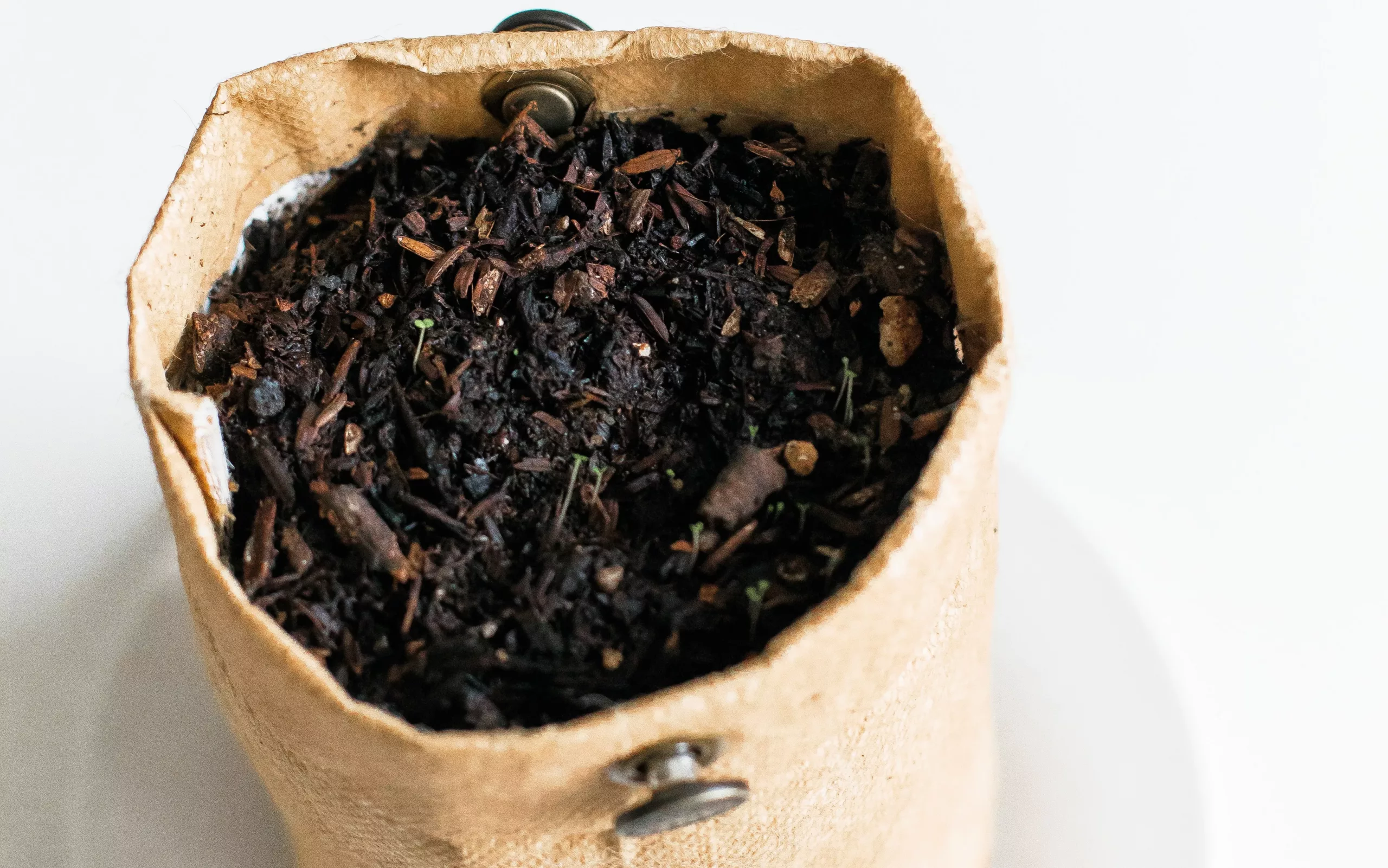
How to Accelerate the Composting Process
Compost accelerators, also known as compost activators, introduce beneficial microorganisms to your compost, making them munch through the waste at warp speed! Examples include coffee grounds, aged manure, and specific enzyme mixes.
Sprinkle or mix the accelerator into your compost pile or bin. Follow the recommended dosage on the product label, or use a cup of coffee grounds per square meter of compost.
You can use accelerators when your compost pile needs a kickstart or is taking longer to break down. Using compost accelerators wisely can supercharge your composting efforts, reducing waste, nourishing the earth, and helping you embrace sustainable living. So, don’t hesitate to give your compost a little push when it needs it.
The Role of Temperature and Moisture in Composting
Like humans, composting microbes enjoy a warm and welcoming home. They are most effective between 43 and 71 degrees Celsius (110 and 160 Fahrenheit). Composting durations can be reduced to half using high temperatures, which speed up the decomposition process.
The ideal moisture content for composting ranges between 40% to 60%. This ensures the microorganisms stay hydrated and active, keeping the composting process humming along smoothly. Too much water, however, can lead to a soppy mess and a lack of oxygen, causing the compost to turn into a smelly, slimy nightmare!
Temperature and moisture play vital roles in the composting process. The right balance of these factors is essential for effective decomposition and producing high-quality compost.

Donate Your Compost to Community Gardens
Did you know your kitchen composters can do more than just reduce waste and nourish your garden? You can spread the love to your local community gardens and create a positive impact on a larger scale.
Community gardens are unique spaces where people come together to grow fresh produce, promoting sustainable living. These green havens beautify neighborhoods, contribute to food security, and reduce carbon footprints.
Contact your local community gardens to see if they accept compost donations. Many community gardens are thrilled to receive nutrient-rich compost to enrich their soil and grow bountiful crops. Check with the organizers about their composting needs and preferences. Some gardens may have specific guidelines on what they can accept, so it’s good to clarify beforehand.
Donating compost enriches the earth and spreads awareness about sustainable living and the importance of reducing food waste. You can inspire others to join the composting movement!

Take Kitchen Composting to the Next Level
It’s time to take your sustainable practices to the next level by embracing backyard composting and worm bins. Doing so can further reduce your waste footprint and create nutrient-rich compost for your garden.
Backyard Composting and Worm Bins
Backyard composting allows you to compost larger quantities of waste, including yard trimmings, creating even more nutrient-rich compost for your garden. For an extra boost, consider setting up a worm bin. These wriggly workers munch through food scraps at an impressive rate, producing compost that plants adore!
Educating Others and Advocating for Composting
Talk to people you know and pass on your composting knowledge. We all know that much edible food gets thrown away in the United States, adding to landfill gas emissions. Promoting composting can lighten the load on the planet and get more people interested in eco-friendly practices.
Partnering with Local Initiatives
Collaborate with local waste-reduction groups and programs. Composting initiatives, which collect and process organic waste into valuable compost for public gardens and parks, are becoming increasingly common nationwide. If you join forces with these programs, you may have a more significant influence and help create a greener future for everyone.
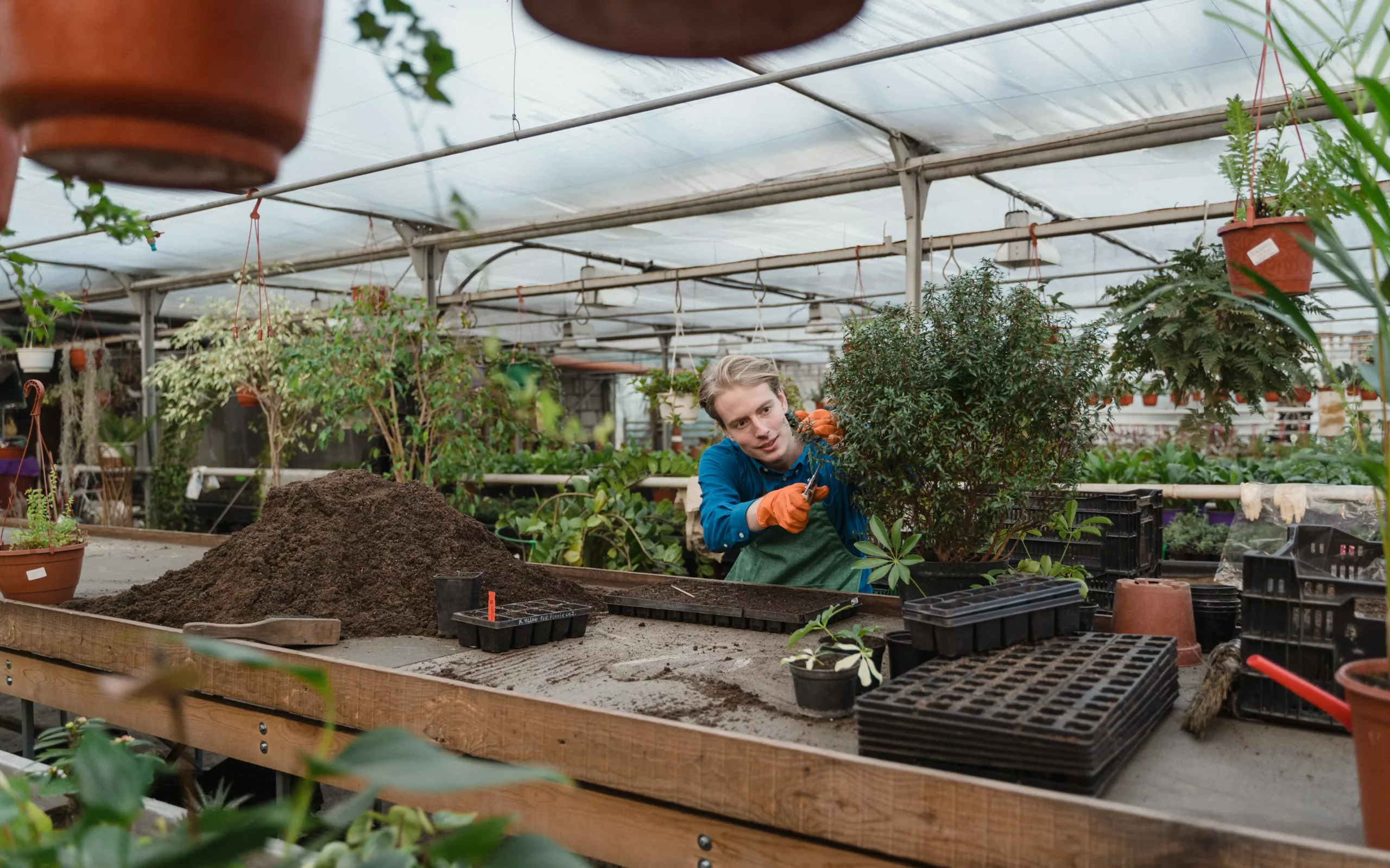
Conclusion
Kitchen composters are the eco-friendly superheroes we need to reduce waste and nourish our planet. Composting kitchen scraps can significantly lead to carbon footprint reduction and contribute to a circular economy. From selecting the right composter to troubleshooting common issues, this guide has equipped you with the knowledge and tools to embark on your composting journey.
Let’s all embrace kitchen composting for a greener future, where every banana peel and coffee ground becomes a vital resource in nourishing the earth and fostering sustainable living. Together, we can positively impact the environment, one compost heap at a time!
















